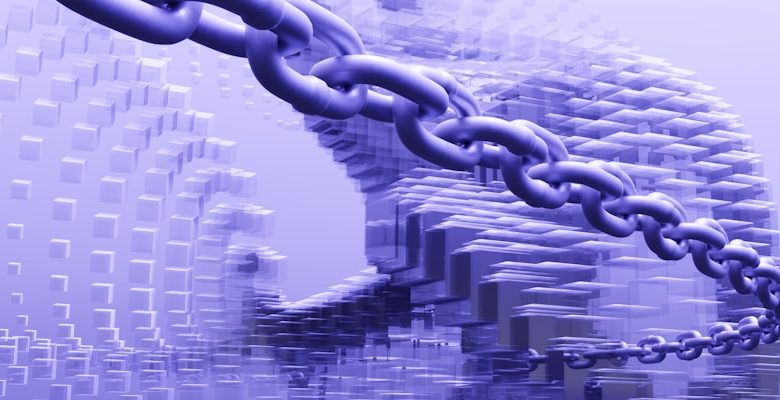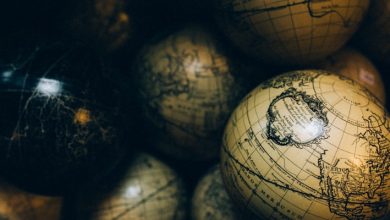The Role of DAOs in Decentralized Crypto Ecosystem Governance

- Understanding the concept of DAOs in decentralized governance
- The evolution of DAOs and their impact on crypto ecosystems
- Challenges and opportunities in implementing DAOs for governance
- Exploring the decentralized decision-making process in DAOs
- The role of smart contracts in facilitating DAO governance
- Case studies of successful DAOs in the crypto space
Understanding the concept of DAOs in decentralized governance
Decentralized Autonomous Organizations (DAOs) play a crucial role in the governance of the crypto ecosystem. DAOs are entities that operate through smart contracts on the blockchain, allowing for decentralized decision-making without the need for a central authority. Understanding the concept of DAOs is essential for grasping their significance in decentralized governance.
DAOs are designed to be transparent and autonomous, enabling members to vote on proposals and make decisions collectively. This decentralized approach ensures that no single entity has control over the organization, promoting fairness and inclusivity. DAOs leverage blockchain technology to facilitate secure and trustless interactions among participants.
In a DAO, members are incentivized to contribute to the ecosystem through various mechanisms such as token rewards or voting rights. This incentivization model fosters active participation and engagement, leading to a vibrant and dynamic community. DAOs can be used to govern various aspects of the crypto ecosystem, including protocol upgrades, funding allocation, and resource management.
Overall, DAOs represent a paradigm shift in governance structures, offering a new way to organize and coordinate collective action in a decentralized manner. By harnessing the power of blockchain technology, DAOs enable stakeholders to collaborate and make decisions autonomously, without the need for intermediaries. As the crypto ecosystem continues to evolve, DAOs are expected to play an increasingly important role in shaping its governance landscape.
The evolution of DAOs and their impact on crypto ecosystems
The evolution of decentralized autonomous organizations (DAOs) has had a profound impact on the cryptocurrency ecosystems. DAOs have transformed the way governance is conducted within these decentralized systems, allowing for more transparent and inclusive decision-making processes.
Initially, DAOs were primarily used for funding projects through initial coin offerings (ICOs). However, they have evolved to encompass a wide range of functions, including decentralized governance, decentralized finance (DeFi), and decentralized applications (dApps).
DAOs operate based on smart contracts, which are self-executing contracts with the terms of the agreement directly written into code. This eliminates the need for intermediaries and ensures that decisions are made according to predefined rules and protocols.
One of the key benefits of DAOs is their ability to promote community involvement and engagement. Token holders within a DAO have voting rights that allow them to participate in decision-making processes, such as approving proposals or electing representatives.
Overall, the evolution of DAOs has paved the way for more democratic and decentralized governance structures within crypto ecosystems. As DAOs continue to grow in popularity and functionality, they are likely to play an increasingly important role in shaping the future of decentralized finance and blockchain technology.
Challenges and opportunities in implementing DAOs for governance
Implementing Decentralized Autonomous Organizations (DAOs) for governance presents both challenges and opportunities in the realm of decentralized crypto ecosystem management. One of the key challenges is the potential for security vulnerabilities within the DAO smart contracts. These vulnerabilities can be exploited by malicious actors to manipulate governance decisions and disrupt the functioning of the ecosystem. To address this issue, thorough security audits and constant monitoring of the smart contracts are essential to ensure the integrity of the DAO.
Another challenge in implementing DAOs for governance is the difficulty in achieving consensus among the participants. Decentralized decision-making processes can lead to disagreements and conflicts that hinder effective governance. It is crucial to establish clear governance mechanisms and rules to facilitate consensus-building and prevent gridlock within the DAO. Additionally, mechanisms for dispute resolution and arbitration may be needed to address conflicts and maintain the functionality of the ecosystem.
Despite these challenges, implementing DAOs for governance also presents significant opportunities for innovation and efficiency in decentralized governance. DAOs enable transparent and autonomous decision-making processes, allowing for greater inclusivity and participation in governance. By leveraging blockchain technology and smart contracts, DAOs can streamline decision-making, reduce bureaucracy, and enhance the overall efficiency of governance processes in the crypto ecosystem.
Furthermore, DAOs have the potential to foster a more decentralized and democratic governance model, where power is distributed among the participants rather than concentrated in a few centralized entities. This can help promote fairness, transparency, and accountability in governance practices, leading to a more resilient and sustainable decentralized crypto ecosystem. Overall, while there are challenges to overcome, the opportunities presented by implementing DAOs for governance are vast and can significantly transform the landscape of decentralized governance in the crypto ecosystem.
Exploring the decentralized decision-making process in DAOs
Decentralized Autonomous Organizations (DAOs) are revolutionizing the way decisions are made within the crypto ecosystem. In DAOs, the decision-making process is conducted in a decentralized manner, where stakeholders have the power to vote on proposals and determine the direction of the organization.
DAOs operate on blockchain technology, which ensures transparency and immutability in decision-making. This decentralized approach allows for a more inclusive and democratic governance structure, where all participants have a voice in the decision-making process.
One of the key benefits of decentralized decision-making in DAOs is the elimination of centralized control and single points of failure. This reduces the risk of corruption and manipulation, promoting a more trustworthy and efficient governance system.
Furthermore, the use of smart contracts in DAOs automates the execution of decisions, ensuring that they are carried out exactly as agreed upon by the stakeholders. This enhances the security and reliability of the decision-making process.
The role of smart contracts in facilitating DAO governance
Smart contracts play a crucial role in facilitating decentralized autonomous organization (DAO) governance within the crypto ecosystem. These self-executing contracts are programmed to automatically enforce and execute the rules and agreements agreed upon by the members of a DAO. By utilizing smart contracts, DAOs can ensure transparency, accountability, and efficiency in their decision-making processes.
One of the key benefits of using smart contracts in DAO governance is the elimination of the need for intermediaries or third parties. This decentralized approach allows for greater trust among members, as the rules are pre-determined and executed automatically without the need for human intervention.
Furthermore, smart contracts enable DAOs to streamline their voting and decision-making processes. Members can submit proposals, vote on various issues, and allocate resources all within the framework of the smart contract. This automation reduces the potential for manipulation or fraud, ensuring a fair and democratic governance structure.
Overall, smart contracts are essential tools for DAOs looking to establish a robust and efficient governance framework within the decentralized crypto ecosystem. By leveraging the power of blockchain technology, DAOs can achieve greater autonomy, transparency, and trust among their members, ultimately leading to more effective and sustainable decentralized governance.
Case studies of successful DAOs in the crypto space
There have been several notable examples of successful Decentralized Autonomous Organizations (DAOs) in the cryptocurrency space that have demonstrated the power and potential of this innovative governance model. These case studies showcase how DAOs can effectively manage resources, make decisions, and drive community participation in a decentralized manner.
-
The DAO: One of the earliest and most well-known examples of a DAO, The DAO was created on the Ethereum blockchain in 2016. It aimed to create a decentralized venture capital fund where token holders could vote on investment proposals. Despite facing a major hack that resulted in the loss of millions of dollars worth of Ether, The DAO demonstrated the potential of decentralized decision-making and community governance.
-
MolochDAO: MolochDAO is a grant-giving DAO that operates on the Ethereum blockchain. It provides funding for Ethereum ecosystem projects and initiatives through a decentralized governance model. By allowing members to submit funding proposals and vote on them, MolochDAO has shown how DAOs can efficiently allocate resources and support innovation in the crypto space.
-
Aragon: Aragon is a platform that enables the creation and management of DAOs. It offers tools for decentralized governance, fundraising, and decision-making. Aragon DAOs have been used for a variety of purposes, including community governance, decentralized organizations, and token-based voting systems. Aragon has become a key player in the DAO space, showcasing the versatility and adaptability of decentralized governance models.



